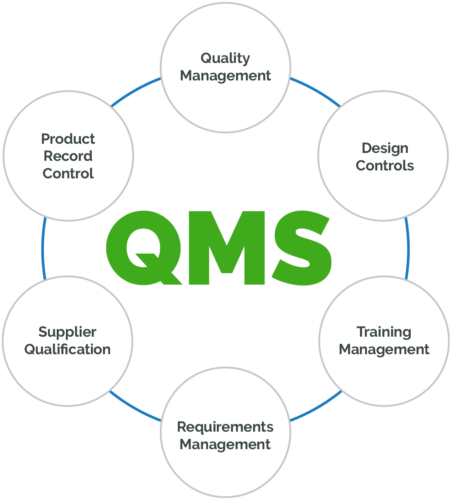Can Small Businesses Benefit from a Quality Management System?
Quality Management System

We’re Too Small for That – Or Are You?
A few years ago, I was consulting with a small IT startup — about ten people in a shared office space, laptops on every surface, half the team juggling dev work and support tickets at the same time. Great energy, lots of hustle, but zero processes.
One day, the founder casually said, “We’re thinking about implementing a quality management system… but isn’t that stuff more for the big guys?”
Sound familiar?
That’s a common perception — that Quality Management Systems (QMS) are meant for large enterprises, compliance-heavy industries, or companies with the resources to dedicate whole departments to process improvement.
But here’s the truth: small businesses might be the ones who benefit the most.
In this article, we’ll explore why that is and walk through a practical, down-to-earth guide to implementing an effective quality management system—even if your entire team could fit into one meeting room.
Why Small Businesses Need Structure (Not Bureaucracy)
Let’s get one thing out of the way: a QMS isn’t about slowing you down with paperwork and red tape. It’s about creating clarity—the kind that helps your team do their best work without reinventing the wheel every week.
For small businesses, the benefits of a QMS include:
-
Fewer mistakes due to better documentation and consistency
-
Improved customer satisfaction through reliable service or product delivery
-
Streamlined onboarding for new hires
-
Easier scaling when you’re ready to grow
It’s not about adding complexity. It’s about removing chaos.
But Isn’t QMS Expensive and Overwhelming?
It doesn’t have to be.
Sure, if you’re looking to get ISO 9001 certified tomorrow, there’s a cost involved. But if you’re just looking to implement a simple, effective QMS tailored to your team, you can start small — and build as you grow.
Here’s what you don’t need:
-
A full-time quality manager
-
Complicated software
-
Dozens of procedures and forms
What you do need? A clear structure, a few consistent processes, and a mindset that values continuous improvement.
Real Talk: What a QMS Looks Like in a Small Business
Let’s say you run a small web development agency.
Here’s what a light, effective QMS could look like:
-
A checklist for onboarding new clients (so no key info is missed)
-
A template for delivering project updates (to keep comms consistent)
-
A post-project review to gather feedback and learn what could be better
-
A shared document outlining your team’s standard coding practices
-
A monthly 30-minute “quality check-in” to review what’s working and what’s not
See? It’s not scary. And over time, these small habits add up to big improvements.
The Competitive Advantage No One Talks About
Here’s something that’s often overlooked: having even a basic QMS in place can give your small business a serious edge.
It shows clients that you’re organized, consistent, and reliable — not just creative or scrappy. It builds trust. And when you start competing for bigger contracts or clients with compliance requirements, your QMS becomes a major selling point.
Plus, when you do decide to scale or go for ISO certification down the road, you’ll already have a strong foundation in place.
A Simple Guide to Implementing an Effective Quality Management System
If you’re convinced a QMS is worth exploring, here’s a simplified path to get started:
1. Start with One Core Process
Pick the area where inconsistency causes the most pain — maybe it’s customer onboarding, bug tracking, or product delivery. Write it down. Get team input. Document what should happen every time.
2. Keep It Lean
Don’t go overboard. Avoid corporate jargon and unnecessary steps. Your QMS should be usable, not impressive on paper.
3. Involve the Team
This isn’t a top-down project. Involve the people who do the work — their insight is gold, and their buy-in will make or break adoption.
4. Review Regularly
Set a recurring time (even once a quarter) to ask: What’s working? What’s broken? What could we improve? Then actually make the changes.
5. Document It in Tools You Already Use
Don’t create a new platform. Use Notion, Trello, Google Docs — whatever fits your current workflow. The goal is accessibility, not formality.
Conclusion: Quality Is a Mindset, Not a Department
So, can small businesses benefit from a quality management system? Absolutely — and in many ways, they’re in the perfect position to.
Without layers of hierarchy or entrenched habits, small businesses can implement changes quickly, test new ideas, and build a strong culture of quality from day one.
If you’re running or working in a small business and want to deliver more value, reduce headaches, and get your team aligned — a lightweight, tailored QMS might just be the smartest move you can make.
Start small. Stay flexible. And remember: quality isn’t about being perfect — it’s about getting better, on purpose.








